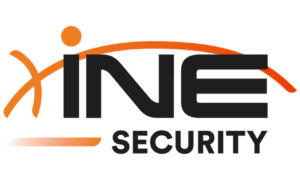In a landscape where cyber threats morph by the hour and digital infrastructures grow more complex by the day, penetration testing has evolved from a security best practice to a critical business function. Cybercrime is expected to cost the global economy a staggering $10.5 trillion annually by 2025, and businesses that fail to rigorously test their systems aren’t just at risk—they’re actively vulnerable. No longer a cybersecurity “nice-to-have,” penetration testing is now a must-have across industries.
Understanding Penetration Testing: Ethical Hacking That Exposes Weaknesses Before Criminals Do
Penetration testing, also known as ethical hacking, is a proactive approach to cybersecurity that involves simulating real-world cyberattacks to uncover weaknesses in an organization’s infrastructure. Conducted by highly trained professionals, these simulated attacks mirror the tools, tactics, and procedures used by actual threat actors, allowing organizations to fix vulnerabilities before they are exploited.
This process goes far beyond scanning for open ports or outdated plugins. Penetration testers assess everything from network configurations and web applications to employee behavior and internal processes. The result? A comprehensive understanding of how a business can be breached—and, more importantly, how to prevent it.
Expanding Beyond the Tech Giants: Why SMBs and Niche Sectors Are Prioritizing Testing
While once thought to be a luxury only enterprise giants could afford, penetration testing has become a strategic investment for businesses of all sizes, including:
- E-commerce and retail brands handling sensitive customer data
- Healthcare organizations protecting patient records
- SaaS companies building scalable platforms
- Financial firms managing transactions and trust
Even startups are realizing that the cost of a data breach far outweighs the cost of prevention. A single incident can result in reputational damage, legal consequences, compliance penalties, and lost business—especially in a hyper-competitive digital economy.
Continuous Testing: The Future of Cybersecurity in a World of Agile Development
Traditional, one-time security audits no longer meet the demands of today’s rapidly evolving digital infrastructure. Agile development cycles, DevOps methodologies, and frequent updates require ongoing, dynamic security assessments that evolve with the technology they protect.
Firms like PentexSec are redefining what effective penetration testing looks like by embracing a hybrid model—automated vulnerability scanning combined with expert manual testing. This enables businesses to receive continuous feedback on their security posture without sacrificing the depth and nuance that only human analysts can provide.
Their real-time, adaptive penetration testing platforms integrate directly with development pipelines, ensuring security isn’t just a final step—it’s embedded throughout the lifecycle.
More Than Just Compliance: Penetration Testing as a Strategic Market Advantage
It’s not just about staying on the right side of regulations like GDPR, HIPAA, SOC 2, or PCI-DSS—though those are important too. Penetration testing gives businesses a competitive edge in the marketplace.
- Investors trust companies with a strong security culture.
- Customers prefer platforms that prioritize data protection.
- Partners and suppliers feel more confident engaging with security-conscious businesses.
By investing in regular testing, organizations aren’t just defending against threats—they’re signaling maturity, resilience, and long-term viability.
Shaping the Future: A Security Culture for the Digital Business Landscape
2025 and beyond will belong to businesses that treat cybersecurity as a core pillar of their operations. Penetration testing must be embedded into the company’s DNA—not as a once-a-year event, but as a continual process of resilience-building.
PentexSec is leading the charge with customizable, intelligence-driven testing services tailored to modern businesses. Their offerings empower organizations to:
- Identify vulnerabilities across networks, APIs, and cloud environments
- Simulate sophisticated real-world attacks
- Meet compliance requirements faster and more effectively
- Foster a proactive, security-first culture
Final Thoughts: Don’t Wait for a Breach to Realize What Was Missing
Digital transformation is not slowing down—and neither are the hackers. Inaction is the riskiest move of all. The question isn’t if your business will be tested by cyber threats, but how well prepared you’ll be when it happens.
To get ahead of today’s and tomorrow’s security challenges, visit https://pentexsec.com and explore how your business can adopt next-generation penetration testing solutions that are both robust and forward-looking.
Why Penetration Testing Is No Longer Optional: It’s a Business Imperative in the Digital Age
In a landscape where cyber threats morph by the hour and digital infrastructures grow more complex by the day, penetration testing has evolved from a security best practice to a critical business function. Cybercrime is expected to cost the global economy a staggering $10.5 trillion annually by 2025, and businesses that fail to rigorously test their systems aren’t just at risk—they’re actively vulnerable. No longer a cybersecurity “nice-to-have,” penetration testing is now a must-have across industries.
Understanding Penetration Testing: Ethical Hacking That Exposes Weaknesses Before Criminals Do
Penetration testing, also known as ethical hacking, is a proactive approach to cybersecurity that involves simulating real-world cyberattacks to uncover weaknesses in an organization’s infrastructure. Conducted by highly trained professionals, these simulated attacks mirror the tools, tactics, and procedures used by actual threat actors, allowing organizations to fix vulnerabilities before they are exploited.
This process goes far beyond scanning for open ports or outdated plugins. Penetration testers assess everything from network configurations and web applications to employee behavior and internal processes. The result? A comprehensive understanding of how a business can be breached—and, more importantly, how to prevent it.
Expanding Beyond the Tech Giants: Why SMBs and Niche Sectors Are Prioritizing Testing
While once thought to be a luxury only enterprise giants could afford, penetration testing has become a strategic investment for businesses of all sizes, including:
- E-commerce and retail brands handling sensitive customer data
- Healthcare organizations protecting patient records
- SaaS companies building scalable platforms
- Financial firms managing transactions and trust
Even startups are realizing that the cost of a data breach far outweighs the cost of prevention. A single incident can result in reputational damage, legal consequences, compliance penalties, and lost business—especially in a hyper-competitive digital economy.
Continuous Testing: The Future of Cybersecurity in a World of Agile Development
Traditional, one-time security audits no longer meet the demands of today’s rapidly evolving digital infrastructure. Agile development cycles, DevOps methodologies, and frequent updates require ongoing, dynamic security assessments that evolve with the technology they protect.
Firms like PentexSec are redefining what effective penetration testing looks like by embracing a hybrid model—automated vulnerability scanning combined with expert manual testing. This enables businesses to receive continuous feedback on their security posture without sacrificing the depth and nuance that only human analysts can provide.
Their real-time, adaptive penetration testing platforms integrate directly with development pipelines, ensuring security isn’t just a final step—it’s embedded throughout the lifecycle.
More Than Just Compliance: Penetration Testing as a Strategic Market Advantage
It’s not just about staying on the right side of regulations like GDPR, HIPAA, SOC 2, or PCI-DSS—though those are important too. Penetration testing gives businesses a competitive edge in the marketplace.
- Investors trust companies with a strong security culture.
- Customers prefer platforms that prioritize data protection.
- Partners and suppliers feel more confident engaging with security-conscious businesses.
By investing in regular testing, organizations aren’t just defending against threats—they’re signaling maturity, resilience, and long-term viability.
Shaping the Future: A Security Culture for the Digital Business Landscape
2025 and beyond will belong to businesses that treat cybersecurity as a core pillar of their operations. Penetration testing must be embedded into the company’s DNA—not as a once-a-year event, but as a continual process of resilience-building.
PentexSec is leading the charge with customizable, intelligence-driven testing services tailored to modern businesses. Their offerings empower organizations to:
- Identify vulnerabilities across networks, APIs, and cloud environments
- Simulate sophisticated real-world attacks
- Meet compliance requirements faster and more effectively
- Foster a proactive, security-first culture
Final Thoughts: Don’t Wait for a Breach to Realize What Was Missing
Digital transformation is not slowing down—and neither are the hackers. Inaction is the riskiest move of all. The question isn’t if your business will be tested by cyber threats, but how well prepared you’ll be when it happens.
To get ahead of today’s and tomorrow’s security challenges, visit https://pentexsec.com and explore how your business can adopt next-generation penetration testing solutions that are both robust and forward-looking.



































